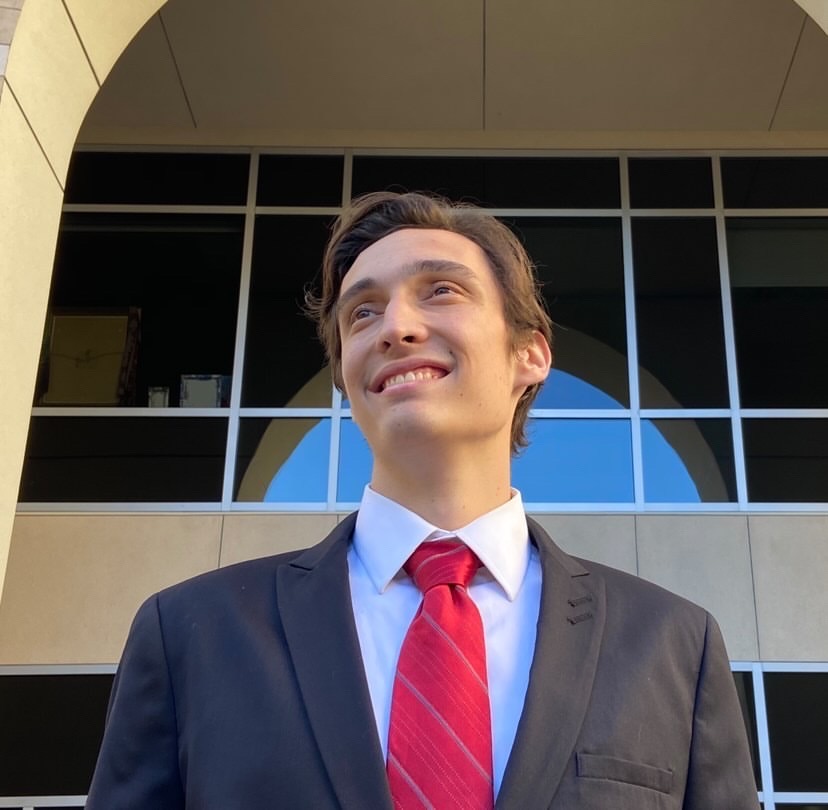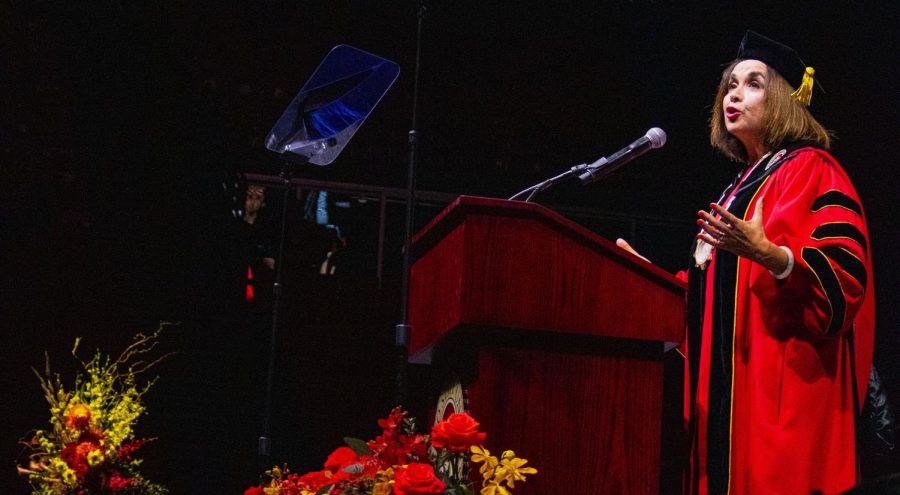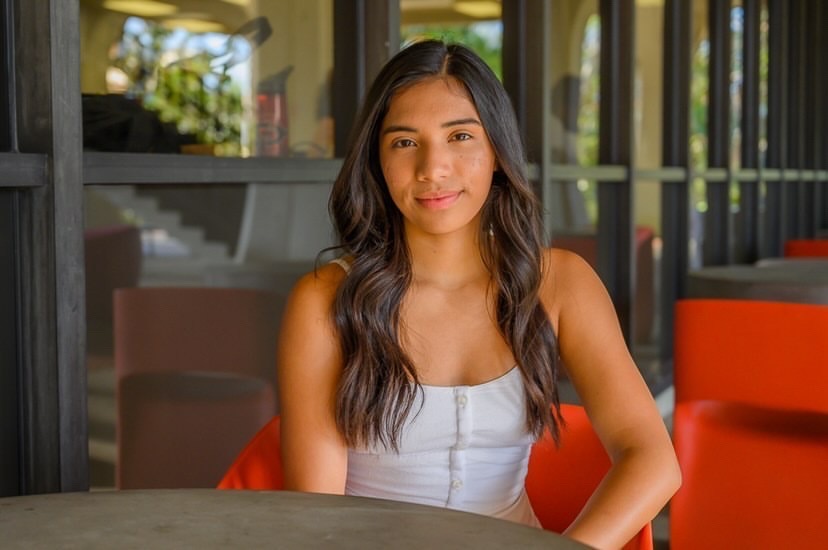There is a serious disconnect between the students at San Diego State and the university’s administration. This is not necessarily unheard of. Students, who want to have fun will never like those enforcing rules and safety measures on them, right? But, what if the disconnect goes past students who are upset about missing a good time?
When the discontentment stems from the administration’s poor handling of a pandemic, worries about the physical safety of students and concerns about the negligence of mental health, it is no longer just an impasse between the rules and those who seek to break them.
Students questioning the intentions of their leadership is a real problem.
This begs the question, why do students feel their leadership’s intentions may not be in the correct place?
Students were allowed to come back to campus on the presumption they are adults and responsible enough not to engage in risky behaviors and not to endanger our communities. In fact, SDSU did not even test students for COVID before returning them to on-campus living and holding in-person classes. Students were lured back to campus with the promises of in-person classes and the chance of normal campus life, but without appropriate safety precautions in place. The return of students to campus without testing them for COVID-19 was a clear mistake as cases spiked right after students moved in. However, when this happened, the administration did not accept fault for their misguided actions, but instead blamed it on students partying and quickly imposed a Stay at Home Order for students on-campus and paused in-person instruction.
Most students living on-campus are freshmen, who had just been robbed of their prom and high school graduation ceremony. Surely, they could not have been expected by administration members to follow unenforced social distancing protocols, especially when they were put in close proximity with other college students. Could the people who made the decision to allow students to live on campus have not seen this spike coming?
Or were they expecting it and just guaranteeing in-person classes to get students, and their money, to return to campus?
In many of the “weekly digests” on COVID-19 that SDSU releases, there was direct blame for the spike in cases placed upon students living off-campus. Yet, most students who live off-campus had leases locked in that started at the beginning of August or earlier in the summer and the rise in cases among SDSU students only happened when students were returned to on-campus living in late August. Just like how the outbreak was blamed on students partying, it was also blamed on off-campus students in another attempt to divert blame from the administration’s decision to bring students back to campus.
All of these events came to a boiling point when the SDSU Academic Senate voted to take away spring break due to public health concerns.
If public health is the main concern, then why were students not immediately required to be tested for COVID-19 when they arrived at SDSU in the fall?
Why were students allowed to return from winter break to on-campus housing before being tested?
Or could they not require testing before returning from spring break instead of canceling it?
Is canceling spring break just another attempt to half-heartedly save face to the public and blame students for COVID outbreaks on campus?
Everyone can agree students’ physical and mental health needs to be prioritized (before profit or negative press coverage), but is it?
Listening to the student body is supposed to guarantee that students’ needs are being addressed, but are they?
“San Diego State University (SDSU) operates under a shared governance philosophy — where each member of the community (whether faculty, student, staff, or administrator) has an opportunity to weigh in on matters of policy and procedure. SDSU’s governing bodies include the Office of the President, the University Senate, and Associated Students.”
At least that is what is conveyed on the SDSU Senate website.
The philosophy of shared governance at SDSU started to be publicly criticized when former Academic Senate Chair Mark Wheeler spoke about shared governance being “alive and well” right before the same Senate made the astonishing decision to cancel spring during a private Zoom meeting, despite the more than 400 students who showed up to protest against the removal of spring break. In an inevitable virtual setting, Associated Students has hosted events all year filled with engaging activities including bringing in Leslie David Baker (widely known for portraying Stanley Hudson from the Office), which were revered as big successes if they managed to get 100 or 200 students to log on. This should put into perspective how big of a deal it was that over 400 students on a random Tuesday afternoon logged on to, yet another, Zoom meeting.
This was important for students.
If student voices truly mattered, then this show of support by the student body at the December Academic Senate meeting would have been enough to make the Senate keep spring break.
This decision that completely disregarded students’ mental health is a symptom of SDSU’s faltering and possible facade of a shared governance system. If the system was really “alive and well,” why would 44 senators have not listened to the requests of the over 400 students that showed up?
The Senate rejected the administration’s proposal to get rid of spring break at their previous meeting, which would have added an extra week to winter break because students attended this meeting and vocalized that this proposal of sixteen straight weeks of instruction was completely ignorant to possible repercussions on students’ mental health.
In response, administration members patched together four “Rest and Recovery days” as a solution that failed to actually address students’ mental health concerns. However, now the administration could say they were addressing the students’ requests and get their proposal passed.
This is SDSU’s approach to shared governance: giving the facade that students’ concerns are listened to. “An opportunity to weigh in” only counts as an opportunity if the voices weighing in will be listened to. Resultantly, shared governance is not alive, and it is definitely not well at San Diego State.
I feel that A.S. needs to make sure students’ voices really do matter. This does not mean that any current member is not already trying to do so, but I want to acknowledge a flaw in the system. I attend A.S. meetings, and from those, I have seen that the focus of some of these meetings can often be put in the wrong places. Although significant, it feels like too much of the focus of many meetings I am in is approving other meetings’ minutes. The real focus of A.S. should be on bringing students’ voices together and then planning what can be done to resolve students’ issues or best support our student body.
The amazing part of A.S. is that it pulls students together from all the diverse areas of our campus. These different student perspectives all need and deserve to be heard, responded to and interacted with. There is a difference between giving students a spot at each meeting and giving them a proportionately equal voice. There are only 5 student members in the Academic Senate and each of them voted to keep spring break. Completely ignoring one perspective is not shared governance.
I love being a part of A.S. and appreciate every last student and advisor I have met through this organization. However, part of loving something is being able to admit that it is not perfect and looking at what one can do to support and improve it.
A.S. needs to make sure that when it comes to interactions with faculty, staff and administration that we are representing every students’ voice and ensuring that their voices are actually making a difference, which is what shared governance should look like.
In my two years with A.S., I have seen how much power we have as students. This power needs to be properly facilitated and directed. That means standing up to anyone who is opposing what our students want, and doing everything we can to set up our students for success.
Robson Winter is a sophomore studying political science and serves as the College of Arts and Letters Associated Students Representative.










